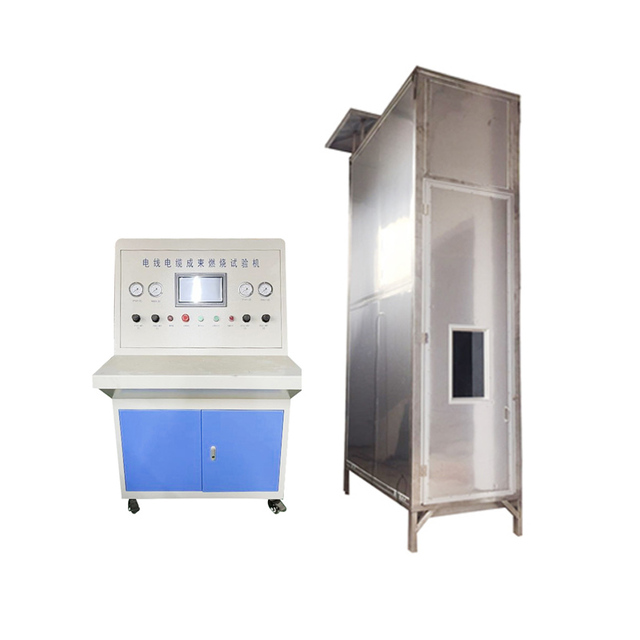Power Frequency Spark Testing Equipment Manufacturers and Solutions
Understanding the Power Frequency Spark Test Machine Key Companies and Insights
In the field of electrical engineering, particularly in the manufacturing and testing of electrical apparatus, power frequency spark test machines play a crucial role. These machines are essential for evaluating the dielectric strength of electrical insulating materials. By applying an electrical stress at power frequency, manufacturers can ensure that their products meet safety and performance standards. This article will explore the significance of power frequency spark test machines, their working principle, and highlight some key companies in the industry.
The Significance of Power Frequency Spark Testing
Power frequency spark tests are conducted to assess the integrity and reliability of insulation used in electrical devices. These tests help identify electrical weaknesses, validate product designs, and ensure compliance with international standards. The process involves applying a high voltage, typically at a frequency of 50 or 60 Hz, to an insulated specimen. The main goal is to determine whether the insulation can withstand the voltage without electrically breaking down.
The results from these tests are critical. A failed test can indicate that the insulation may not protect the device effectively under normal operating conditions, leading to potential failures, safety hazards, and economic losses. As such, companies that produce high-voltage equipment—such as transformers, switchgear, and high-tension cables—rely heavily on these tests to validate the performance of their products.
How Power Frequency Spark Test Machines Work
Power frequency spark test machines utilize transformers to increase voltage levels to the required test values. The setup typically includes electrodes, where one acts as a point of reference and the other is connected to the test item. The voltage is gradually applied, and the machine monitors for any breakdown. If a spark occurs, it indicates failure in the insulation, and the machine will record the voltage level at which the breakdown occurred.
Modern machines are equipped with advanced features such as automatic shutdown in case of an abnormal condition, data logging capabilities, and software integrations that allow for comprehensive analysis of test results. The accuracy and reliability of test machines are paramount, as they directly influence product quality and safety.
power frequency spark test machine companies

Key Companies in the Power Frequency Spark Test Machine Industry
1. Biddle Instruments Known for their commitment to quality and innovation, Biddle Instruments offers a range of testing equipment, including power frequency spark test machines. Their products are widely used in the electrical manufacturing industry for insulation testing.
2. Hugh Smith & Associates, Inc. This company is recognized for its expertise in dielectric testing equipment. Their spark test machines are noted for their durability and precision, serving a variety of applications across different sectors.
3. Megger With a rich history in electrical test equipment manufacturing, Megger provides high-quality power frequency spark test machines. Their focus on research and development ensures that they remain at the forefront of testing technology.
4. Schneider Electric As a global leader in energy management and automation, Schneider Electric manufactures a range of electrical testing equipment, including spark test machines. Their solutions are integrated with smart technology to enhance user experience and testing accuracy.
5. T&R Test Equipment Specializing in high voltage testing equipment, T&R offers a variety of spark test machines engineered for reliability and safety. Their products cater to utility companies and electrical contractors globally.
Conclusion
Power frequency spark test machines are indispensable tools for ensuring the safety and reliability of electrical insulation. Companies across various sectors utilize these machines to guarantee that their products can withstand the challenges posed by everyday operational stresses. By understanding the importance and functionality of these devices, as well as identifying key industry players, organizations can make informed decisions that lead to enhanced safety, reliability, and overall performance in electrical applications. As technology continues to evolve, so too will the capabilities of power frequency spark test machines, further solidifying their role in the industry.
-
Why the Conductor Resistance Constant Temperature Measurement Machine Redefines Precision
NewsJun.20,2025
-
Reliable Testing Starts Here: Why the High Insulation Resistance Measuring Instrument Is a Must-Have
NewsJun.20,2025
-
Flexible Cable Flexing Test Equipment: The Precision Standard for Cable Durability and Performance Testing
NewsJun.20,2025
-
Digital Measurement Projector: Precision Visualization for Modern Manufacturing
NewsJun.20,2025
-
Computer Control Electronic Tensile Tester: Precision and Power for the Modern Metal Industry
NewsJun.20,2025
-
Cable Spark Tester: Your Ultimate Insulation Assurance for Wire and Cable Testing
NewsJun.20,2025
 Copyright © 2025 Hebei Fangyuan Instrument & Equipment Co.,Ltd. All Rights Reserved. Sitemap | Privacy Policy
Copyright © 2025 Hebei Fangyuan Instrument & Equipment Co.,Ltd. All Rights Reserved. Sitemap | Privacy Policy
